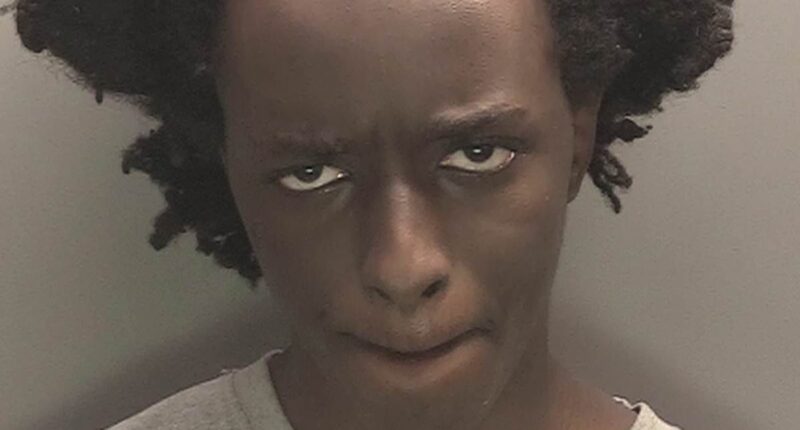Labour’s sanctions against criminals who fail to appear for their court sentencing have been criticized for being lenient. The new penalties will be effective for only a few weeks, drawing ridicule for their short duration.
The Government unveiled new legislation granting judges the power to impose solitary confinement on offenders who fail to attend.
But the measures will impose the penalty for a maximum of three weeks.
Additional consequences, such as losing access to TVs in their cells or being deprived of extra gym sessions, can also be enforced under the new legislation, but for a maximum of six weeks.
These measures aim to act as a disincentive for criminals already facing lengthy sentences, who may not be swayed by the threat of further incarceration.
Tory MP Jack Rankin said: ‘The idea that taking away TV time or extra gym sessions will deter the country’s most dangerous criminals from behaving appallingly is pathetic. This is laughable.
‘Labour should stop pretending they’re tough on crime and get serious about sentencing.’
The powers in the Victims and Courts Bill, published today , come in the wake of a series of high-profile cases where murderers and other criminals refused to leave their cells to be told their fate.

Axel Rudakubana refused to come into the dock at Liverpool Crown Court earlier this year for his sentencing for the murder of three young girls in Southport
A Ministry of Justice spokesman said the Bill’s measures meant ‘cowardly’ offenders ‘who attempt to evade justice could be subject to tough sanctions’.
The previous Conservative government published a Bill last year which would have introduced similar powers but it was abandoned due to the general election being called.

Thomas Cashman, the killer of Olivia Pratt-Korbel, also refused to attend his sentencing
Like the Tories’ proposals, the new measures will also allow criminals who refuse to attend sentencing hearings to be handed up to two years extra in jail.
Labour’s Bill will allow judges to impose the additional punishments on convicted offenders who refuse to leave their cell or whose ‘disruptive and disrespectful behaviour results in their removal from the courtroom’.

Jordan McSweeney refused to come to the dock to hear his fate for murdering 35-year-old law graduate Zara Aleena as she walked home in Ilford, east London, in June 2022
In January Southport killer Axel Rudakubana refused to come into the dock as he was sentenced at Liverpool Crown Court, after previously disrupting proceedings repeatedly with claims he felt ill.
He was sentenced to a minimum of 52 years for the ‘sadistic’ murders of Elsie Dot Stancombe, seven, Bebe King, six, and Alice da Silva Aguiar, nine, last summer.
Likewise, Jordan McSweeney who murdered aspiring lawyer Zara Aleena, 35, in east London in 2022 refused to attend his sentencing hearing. He was handed a minimum tariff of 38 years, later cut to 33 by the Court of Appeal.
So, too, did drug dealer Thomas Cashman who murdered nine-year-old Olivia Pratt-Korbel when she was caught in crossfire in her home in Liverpool in August 2022. -Cashman was handed a minimum tariff of 42 years.
But Farah Naz, Miss Aleena’s aunt, said: ‘When someone already has a 30-years plus sentence is this going to make much of a difference? Maybe it will, maybe it won’t.’

Farah Naz, Zara Aleena’s aunt, expressed reservations about the proposals
She urged ministers to consider introducing additional powers to allow sentencing hearings to be broadcast in a criminal’s prison cell if they refuse to leave, and for CCTV to be installed so families can watch the offender’s reaction to their sentence.

Southport victims Bebe King, Elsie Dot Stancombe and Alice da Silva Aguiar, left to right
Justice minister Alex Davies-Jones said: ‘Justice isn’t optional – we’ll make sure criminals face their victims.’
But Robby Potter, one of the most seriously-injured survivors of the 2017 Manchester Arena bombing – who was blasted through the heart with shrapnel while waiting to collect his daughter – said: ‘It’s nowhere near enough. For someone given life, an extra two years is a joke.

Zara Aleena was murdered as she walked home from a night out with friends in east London
‘For terrorism, they should have no privileges.’
Martin Hibbert, who suffered a spinal cord injury in the same attack, said ministers needed to ‘go further’ and introduce ‘meaningful deterrents’ to stop the most serious criminals hiding from victims and their relatives.
In 2020 Hashem Abedi – whose suicide bomber brother Salman Abedi detonated the deadly home-made device – was branded a ‘coward’ when he hid in his cell as he was given a record 55-year minimum term for 22 counts of murder.
Mr Hibbert, whose daughter Eve suffered severe brain damage in the atrocity when she was just 14, said: ‘While I welcome the Government’s attempt to make offenders face up to the consequences of their crimes, I remain concerned that the measures in this Bill don’t go far enough — especially for the most serious offenders, like Hashem Abedi, who chose cowardice over accountability.

Olivia Pratt-Korbel, nine, died when a bullet fired by Thomas Cashman hit her as he chased a drug dealer who tried to run into her home in Knotty Ash, Liverpool, in August 2022
‘I was denied the chance to look Abedi in the eye when he was sentenced — a moment I had waited years for.
‘That injustice stays with me, and I know I’m not alone.
‘The trauma of losing a loved one, or surviving a terror attack, is only made worse when the person responsible refuses to show up, face the court, and hear the pain they’ve caused.

Manchester Arena bomb plotter Hashem Abedi refused to leave his cell as a court heard emotional testimony from bereaved relatives in 2020
‘Two extra years in prison may sound tough on paper, but for someone already serving a life sentence or a whole life order, it’s meaningless.
‘The loss of privileges or being confined to a cell for a few weeks won’t undo the damage of them refusing to attend court.
‘Victims deserve more than symbolic punishments — we need meaningful deterrents.
‘This Bill is a step in the right direction, but I urge the Government to listen to victims and go further.
‘The justice system must send a clear message: if you commit the worst crimes, you will not be allowed to hide from justice or from those whose lives you’ve shattered.’

















